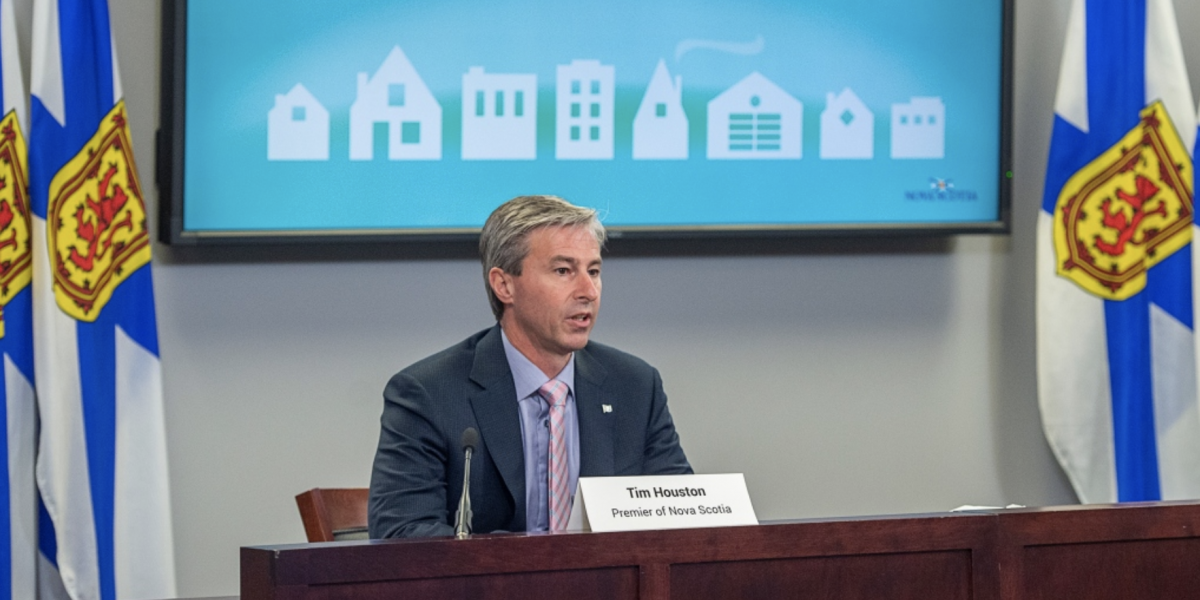On February 3, 2023 the Nova Scotia government announced some changes to the Residential Tenancies Program.
These changes to the regulations under the Nova Scotia Residential Tenancies Act do a few different things, but one of them is conveniently not mentioned at all in the press release: it’s made the process for your landlord to evict you more efficient if you fall behind in your rent.
Existing tenancy law
As a tenant, you are not technically behind on your rent until your rent payment is more than 15 days overdue. For example, if your rent is due on the first of the month then you are not officially “in arrears” until the 17th (after the end of the 15th day).
At that point, your landlord can give notice that they want to end the tenancy due to unpaid rent. The eviction date must be at least 15 days after the form is given to the tenant.
When a tenant receives this notice they can do one or three things:
- pay the rent owing,
- leave, or
- request a hearing to dispute the arrears.
But, here’s the tricky part: that notice your landlord gives you saying they want to end the tenancy (a Form D) is not enforceable. A tenant actually does not have to leave the apartment by the date included on that form.
In order to enforce an eviction for arrears a landlord has to file a separate form to get an eviction order.
Changes that harm tenants
However, this all changed on February 3.
On that day, the small change in the regulations – which, again, was left out of the government press release – made it possible for landlords to skip a step in the eviction process. As explained in the note to tenants that was added to the Form D, if a tenant requests a hearing to dispute their arrears and is unsuccessful in that hearing then the Residential Tenancies Officer can order the eviction without the landlord having to file their own forms.
It’s a subtle change, but ultimately it streamlines the process for landlords to evict people who are increasingly unable to pay skyrocketing rents.
It also means that for tenants, trying to dispute an eviction on the basis of unpaid rent just got a lot riskier. Perhaps you had an arrangement to pay a lower amount of rent in return for shoveling the steps of the building that the landlord has decided to go back on. Or maybe there was just a banking error. But now, if you fail to make your case in your Residential Tenancies hearing, you may be evicted more quickly than you would have if you’d never filed an application.
Before this regulation change, whether a tenant did nothing or requested a hearing after being served a notice to quit for rental arrears, the onus was still on the landlord to make a further application for an eviction order. Now that eviction order can be triggered by the tenant’s application to challenge the unpaid rent.
Landlords making big bucks
As usual, the Minister responsible positioned the changes as increasing flexibility and clarity with no agenda to privilege any one interest over another:
“With any change, we consider the needs of both tenants and landlords – and we continue to look for ways to help them know and understand their rights and responsibilities.”
But, the system is already tilted in favour of landlords, and this change makes a bad situation for tenants even worse.
The average rent for a two bedroom apartment in Halifax is $1449 and the vacancy rate is 1% (closer to 0.6% for affordable units).
Landlords and other investors own one in three condos and one in five houses in Nova Scotia: a higher proportion than in Ontario or British Columbia.
Housing is big business in Nova Scotia, and business has been good.
Wages not catching up for tenants
What is not so good is the ability for regular folks to pay the rent. The minimum wage in Nova Scotia is $13.60 per hour. It is scheduled to increase to $14.50 on April 1 and to $15 on October 1. But even at $15 an hour working full time, that average two bedroom apartment will eat up more than half of your income.
For people in Nova Scotia living on income assistance, annual incomes in 2021 ranged from $8,385 for a single person to $30,571 for a couple with two children. The income of a single person with a disability was $11,559.
And who sets the minimum wage and income assistance rates? The provincial government.
One government department keeps your income well below the poverty line. Another department expedites the process to kick you out of your home when you can’t pay the exorbitant rent demanded by your private landlord. Another department makes a donation to the food bank and applauds itself for helping Nova Scotians through these difficult times.
Right now, there are 820 people actively homeless in Halifax. And instead of making rent control permanent, building more affordable housing, increasing the minimum wage to at least $20/hr, and actually strengthening tenants’ rights, the Houston Conservatives are committed to being active partners in ensuring that landlords continue to bring in record profits.
Did you like this article? Help us produce more like it by donating $1, $2, or $5. Donate

